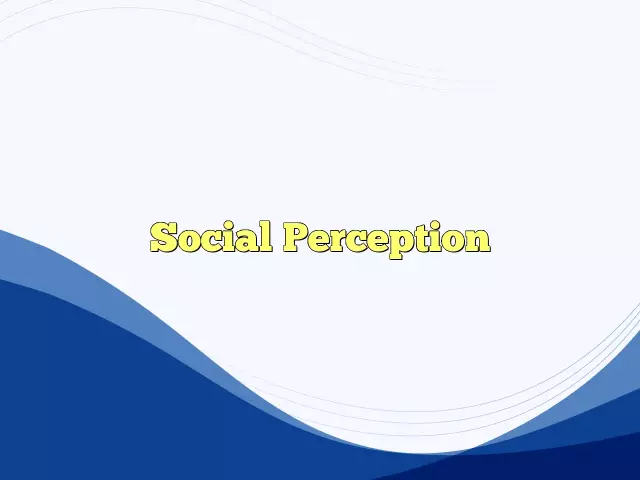- Author Rachel Wainwright wainwright@abchealthonline.com.
- Public 2023-12-15 07:39.
- Last modified 2025-11-02 20:14.
Empathy

The inner universe of each person is unique. We come into this world with our own type of temperament and go through a unique life experience that affects our habits, worldview and the way we perceive the world around us. Looking at the snowfall, one person will remark with admiration: "The snow is falling!" Another nervously throws: "Nasty things climbs in the face." And despite this, we sometimes still manage to comprehend the inner world and the emotional state of another person. This phenomenon is called empathy or empathy.
The origin of empathy
Empathy is a word of Greek origin, it means conscious empathy for the emotional state of another person.
Analyzing what the word "empathy" means, many people confuse it with compassion, although in fact this term means the ability to empathize with any emotion, not only negative, but also positive. Today, there are several interpretations of the term "empathy".
In medicine, he is assigned the role of understanding and demonstrating understanding of the emotional state of another person. Empathic listening comes to the fore here, with the goal of allowing the patient to speak out, encouraging him to frankly express his feelings and sensations.
In psychology, emotional empathy is considered the norm; there are even special methods for identifying people's ability for this form of mental activity, which range from an easy response to complete immersion in the feelings of the interlocutor. But it should not be confused with identification, during which a person not only understands the feelings of another, as is the case with empathy, but in some way does not distinguish them from his own.
In fiction, the term "empath" has taken on a new meaning that more closely resembles emotional telepathy and is considered a psychic ability. However, in reality, such experiments with empathy have not been repeated.
Types of empathy
In classical psychology, empathy is divided into emotional, cognitive, and predicative.
Emotional empathy is a form of mental activity based on the mechanisms of projection and imitation of the interlocutor's reactions (motor, affective). And speaking of empathy in everyday life, we mean exactly emotional empathy, in other words, the ability to project onto oneself the experiences of another person and reproduce these emotions on oneself.
Cognitive empathy is based on such intellectual processes as analogy and comparison. It takes place in scientific discussions and polemics.
Predictive empathy is the ability to predict the feelings of another person in certain situations. And although hardly anyone uses this term in everyday life, in fact, the ability to put oneself in the place of another and predict what feelings he will experience at the same time can be most people.
Psychologists also distinguish forms of empathy such as empathy and empathy into special categories. Empathy is experiencing the emotions of the interlocutor through identification with him. Empathy, on the other hand, is the experience of one's own emotions experienced about the feelings of the interlocutor.
Developing empathy
Emotional empathy in different people has its own special degrees of expression. The lowest level is characterized by self-focus and indifference to the thoughts and feelings of others. Representatives of this species did not seem to experience emotional empathy at all. They rarely understand others, feel discomfort in unfamiliar companies, and therefore try to live in solitude. As a rule, people with a low level of emotional empathy have few friends, and those that do have more colleagues.
The second level of empathy is the most common. Its representatives are indifferent to the thoughts and feelings of others, but on rare occasions they can show empathy. They are able to express emotions, but prefer to keep them under control. A characteristic manifestation of this level of development of empathy is that a person loves films and fiction books, but prefers action rather than description of experiences.
The third level of empathy is high and at the same time rare. Its representatives understand and feel the emotions of others better than their own. They are loyal and generous friends, people who are not indifferent to the problems of others. They are contact, responsive, sociable, sincere, trust their feelings and intuition. The flip side of the coin is that representatives of this level of emotional empathy expect social approval for their actions and easily get out of balance.
In addition to the levels of empathy, there is also a classification of people on this basis. They are categorized as non-empaths, weak empaths, functional empaths, and professional empaths. The first category is those who are not familiar with the feeling of empathy. The second category is well aware of empathy, only experiencing constant stress from experiencing the severity of the world. The third category easily adapts to emotions and does not let them through. Professional empaths easily recognize emotions, even those that the interlocutor prefers to hide, but most importantly, they have the ability to control other people's mental experiences. And this is a pretty useful skill for psychologists and educators. If you want to learn to understand other people, consistently developing empathy will help you gain this ability.
Diagnosing empathy

In order to determine whether you are able to understand the emotional state of the people around you, there are proven techniques. For example, empathy can be diagnosed using the emotional response scale developed by psychology professor Albert Mehrabian. This scientist proposed a simple and effective questionnaire that reveals the level of the ability for emotional empathy for the feelings of the interlocutor and the degree of its correspondence to the reality of the subject.
The Empathy Diagnostic Test consists of 25 questions that lead to one of five levels of empathy ranging from very high to very low. And while it may seem to you that the highest level of empathy is also the best, in fact, hypertrophied sensitivity leads to emotional dependence, vulnerability, and even psychosomatic illness. Of course, it is worth developing the ability to listen to another, to paraphrase and reflect his emotions. But at the same time, it is necessary to choose effective behavioral strategies that will allow you to strike a balance between a rational sober mind and empathetic responsive emotionality.
Found a mistake in the text? Select it and press Ctrl + Enter.






